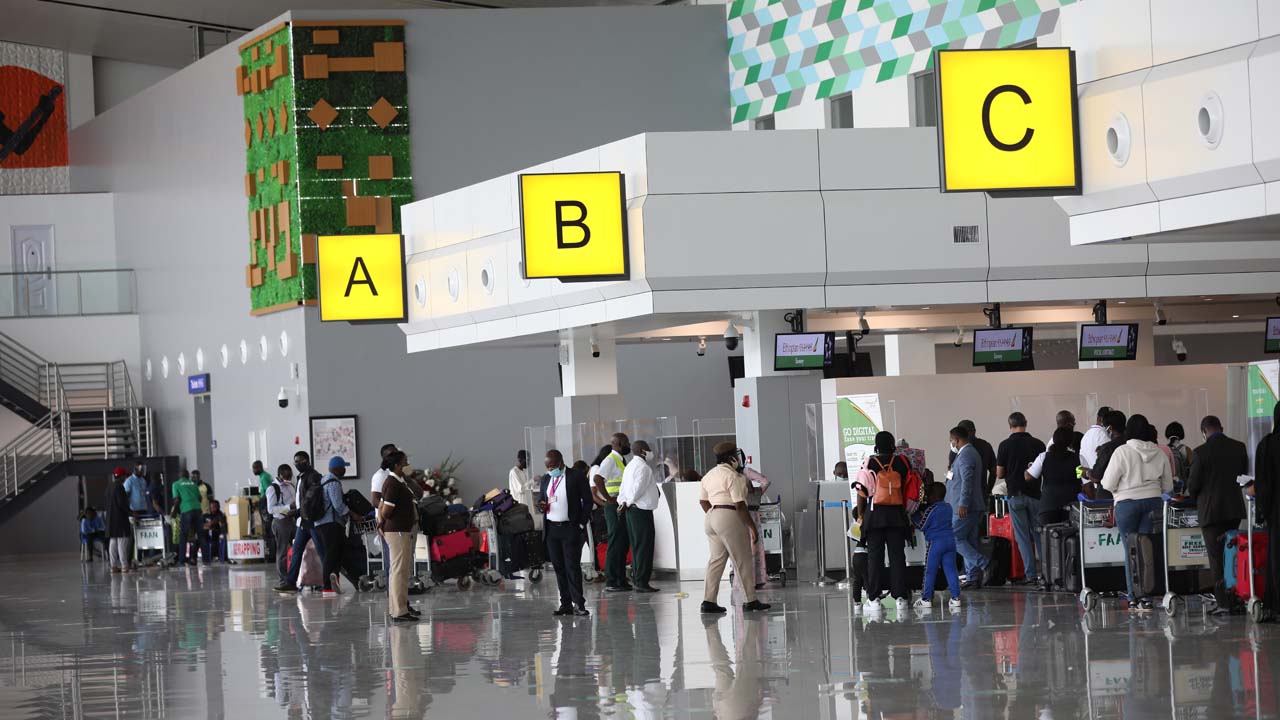
Aviation fuel (otherwise called JET A1) now sells for N903, up from the previous price of N880 per litre. This unfortunate development has put pressure on airline tickets, with passengers paying as much as N200,000 for a return Lagos-Abuja ticket, while a return Lagos-Kano ticket ranges between N150,000 and N200,000 depending on the time of booking. For example, the Abuja-Kano flight on Max Air is priced between N74,000 and N100,000, and on Air Peace, it ranges from N74,000 to N80,000. Similarly, the Abuja-Maiduguri route on Max Air is now N90,000, and the Lagos-Kaduna route on Azman Air is N130,000.
Air Peace offers a return ticket from Abuja-Kano for N140,000 to N160,000, with a one-way ticket costing N78,000. A return ticket from Abuja-Gombe is priced at N150,000, and a one-way ticket is N75,000. For the Abuja-Port Harcourt route, a one-way ticket is N100,000, and the Abuja-Lagos route ranges between N75,000 and N100,000.
The one-way ticket for Air Peace from Lagos to Abuja is now N80,000 and could be as high as N150,000 if the travel date is within 24 hours. The one-way flight from Lagos to Enugu with Air Peace now costs N150,000. United Nigeria Airlines (UNA) offers competitive flights between Lagos-Enugu, Lagos-Anambra, and Abuja-Anambra, with prices ranging from N125,500 to N220,500 per seat.
The unfortunate aspect is that instead of normalising, the fares have continued to exacerbate, threatening the survival of domestic airlines. In 2021 and 2022, fares from Lagos to Abuja cost approximately between N25,000 and N30,000. However, presently, a one-way ticket on the same route, popular among Nigerian travelers, now goes as high as N100,000 and N120,000 depending on the time of purchase. This represents a 300 to 400 percent increase in the price of air tickets in less than two years.
These prohibitive airfares spell doom for many Nigerians. To offer cheap tickets to their passengers and remain in business, some airlines could cut corners in maintaining and servicing their aircraft or completely cut down on the cost of doing so. This can compromise standards and possibly trigger accidents in the case of unmaintained airlines.
Already, the increase is compelling many Nigerians to travel by road, especially on major highways such as the Abuja-Kaduna, Abuja-Lokoja, and Benin-Auchi highways, which are hotspots for kidnapping, abduction, and armed robbery. For instance, in this Christmas season, there are indications that many Nigerian highways are recording several cases of armed robbery, kidnapping, abduction, as well as fatal road accidents. Certainly, the increased airfare has raised the cost of doing business in Nigeria, especially for companies that rely on air transport for the movement of goods and personnel. Many companies that rely on air travel for meetings, conferences, and other professional activities are now incurring enormous costs. Higher airfares are contributing to inflationary pressures, as increased transportation costs for goods and services are often passed on to consumers. This is affecting the overall cost of living.
Consequently, the Aviation Minister, Nigeria Civil Aviation Authority (NCAA), aviation regulators, and industry stakeholders should quickly come together to address the challenges of the competitive air travel environment and alleviate the burden on air travellers by making airfares affordable. It is instructive that the House of Representatives has recently taken steps to curtail exorbitant airfares by international and even domestic airlines in Nigeria. The lawmakers can adjust taxes and fees on aviation fuel and other related fees that can directly impact the operating costs of airlines, which may be passed on to consumers in the form of lower airfares.
Encouraging competition in the airline industry can significantly help lower airfares. The more airlines there are flying, the more competitive the business becomes, and the more the airfares go down. Therefore, the Nigeria Civil Aviation Authority (NCAA) should allow more airlines to fly, especially on the competitive Eastern routes, in order to bring down airfares. The government should invest in new technology that improves operational efficiency and enhances airport capacity, leading to reduced operating costs for airlines, which may translate into lower airfares. The government should encourage airlines to adopt and maintain transparent fair pricing practices and intervene if it suspects anti-competitive behaviour.
Apart from the soaring airfares, the airports are rowdy and disorderly to the extent that they can be mistaken for motor parks. Passengers suffer random flight delays and outright cancellations without punishments being meted out to the defaulting airlines. Most aircraft used for domestic flights in Nigeria operate like Lagos “molue” buses.
No sooner has a plane taxied to a stop at the runway than it is immediately “loaded” with new passengers and directed to fly off, sometimes without thorough checks on the plane, as required by international aviation servicing and checking standards. Depending on the number of passengers waiting at the airport, a plane originally scheduled to fly to Lagos could, for instance, be switched with another flying to Kano. Passengers are frequently switched from one plane to another. It is obvious that the Federal Airports Authority of Nigeria (FAAN) and NCAA need serious reinvigoration.
The truth is that our aviation industry is overdue for a major overhaul. Government has a duty to ensure an enabling environment, particularly with regards to the price of aviation fuel, as well as encouraging fair competition, to stabilise air fares and make these affordable to Nigerians. Importantly, the government must rehabilitate the highways and make them safe and secure as a viable travel alternative. More work needs to be done to modernise the railway and bring it to the doorstep of the ordinary Nigerians. The Tinubu government should not wait for another plane to crash before carrying out these urgent assignments.






